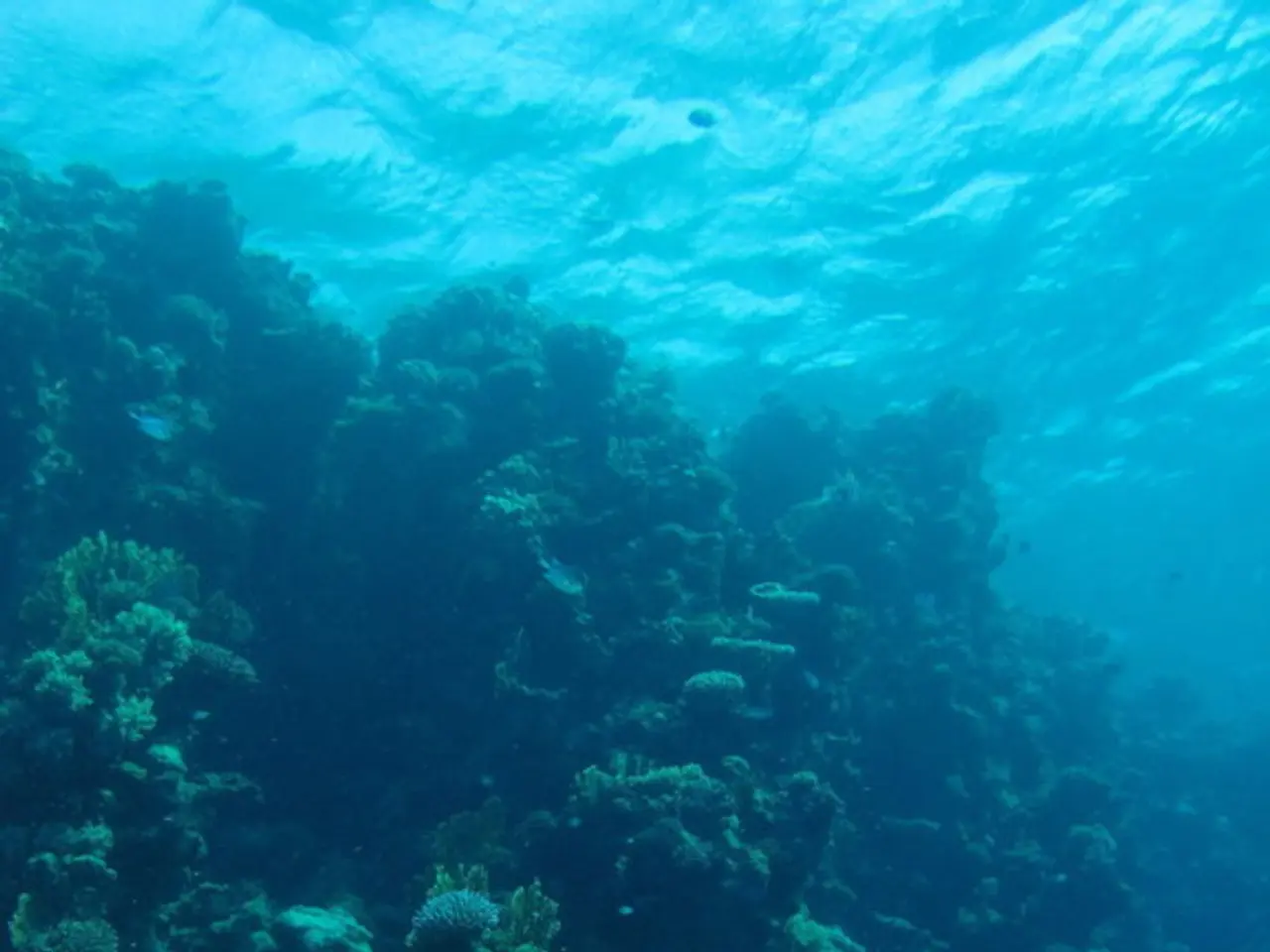Reason Behind the Deepening Colors of the Global Oceans
The darkening of the world's oceans is causing alarm among scientists and communities that depend on marine life. This phenomenon, known as ocean darkening, is primarily driven by global warming and human activities, leading to significant consequences for marine ecosystems and global biogeochemical cycles.
Ocean darkening is primarily caused by reduced sea ice cover, decreased cloud cover (cloud albedo), increased atmospheric water vapor, and decreased aerosols due to global warming. These factors collectively reduce the Earth's surface reflectivity (albedo), causing the ocean to absorb more sunlight and darken [1]. Additionally, artificial light pollution from coastal and offshore human activities also affects ocean light regimes, though this is distinct from the physical darkening caused by climate change [5].
The most significant impact of ocean darkening is on marine ecosystems. The reduced photic zone depth, where photosynthesis occurs, is shrinking, affecting approximately 90% of marine life that depends on this light [5]. This shrinking productive zone disrupts life cycles, threatening the survival of countless marine organisms.
One of the most affected areas is the North Sea and Celtic Sea, the eastern coasts of England and Scotland, the coastlines of Wales, and the northern elements of the Irish Sea, which have all become darker over the past two decades [6]. In these areas, more frequent and intense algal blooms can deplete oxygen in the water, reducing light penetration further.
The darkening of the ocean also impacts global biogeochemical cycles. The reduced photosynthetic capacity from decreased light penetration can lower carbon uptake by phytoplankton, an essential carbon sink, potentially increasing atmospheric CO2 [5]. This could lead to worse climate change.
Moreover, increased solar absorption by darker ocean surfaces warms ocean waters, influencing global climate patterns and potentially intensifying feedback loops exacerbating warming [1]. Altered ocean circulation due to freshwater inputs from melting ice and changes in solar radiation can also impact nutrient transport to surface waters, affecting productivity and carbon sequestration [2][3].
Associate Professor of Marine Conservation at the University of Plymouth, Thomas Davies, stated that the results provide evidence that such changes cause widespread darkening that reduces the amount of ocean available for animals that rely on the sun and the moon for their survival and reproduction [7]. The scale of loss in photic zone depth caused by ocean darkening over the last 20 years is so profound that it represents one of the largest losses of habitat on Earth [8].
Without favorable conditions for their growth, less CO2 is absorbed, and less oxygen is produced, further accelerating global warming. This vicious cycle underscores the urgent need for action to combat ocean darkening and its far-reaching consequences.
References:
- Climate.gov
- NOAA
- NASA
- University of California, Irvine
- University of Plymouth
- BBC News
- University of Plymouth
- University of Plymouth
- Ocean darkening, caused by reduced sea ice cover, decreased cloud cover, increased atmospheric water vapor, and decreased aerosols due to global warming, is a matter of concern for scientists and communities that depend on marine life.
- The reduced photic zone depth, which affects approximately 90% of marine life, is a significant impact of ocean darkening, as it disrupts life cycles and threatens the survival of countless marine organisms.
- The darkening of the ocean also influences global biogeochemical cycles, potentially increasing atmospheric CO2 and worsening climate change due to a reduced photosynthetic capacity from decreased light penetration.
- In areas like the North Sea and Celtic Sea, the eastern coasts of England and Scotland, the coastlines of Wales, and the northern elements of the Irish Sea, ocean darkening has been observed over the past two decades, causing more frequent and intense algal blooms that further deplete oxygen in the water.
- Climate change is a factor that contributes to ocean darkening, as it causes increased solar absorption by darker ocean surfaces, leading to warmer ocean waters and influencing global climate patterns.
- The vicious cycle between ocean darkening, reduced CO2 absorption, and less oxygen production further accelerates global warming, underscoring the urgent need for action to combat ocean darkening and its far-reaching consequences, including impacting health-and-wellness, medical-conditions, and environmental-science.








